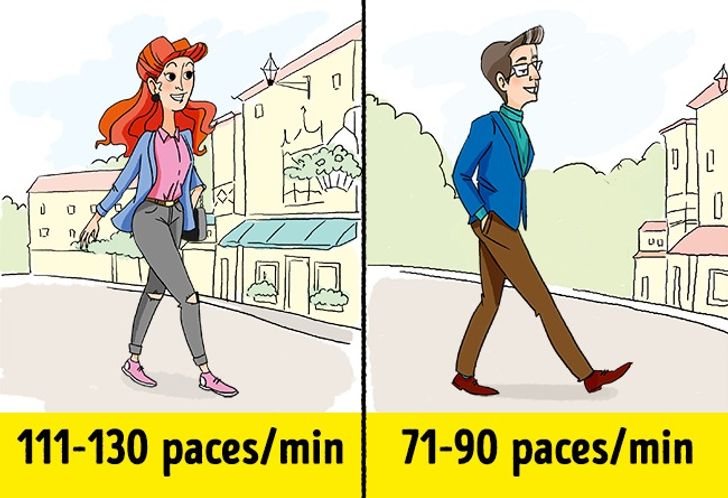Many of us do sports, go to the gym, try different diets … And in all this time we did not even realize that the long walks of daily life, as several studies show, are no less effective against being overweight.
We figured out which rules to follow when walking to replace a full set of exercises.
How To Turn A Walk Into A Training Set

The main factors that affect the calories burned when walking are the distance traveled, the speed and the body weight. For best results, you should stick to a regular schedule and use a pace counter.
This device will tell you how far you have walked during the day. If you’re running a long distance but still haven’t lost weight, you can count how many steps to add.
How Many Paces To Make Per Day To Lose Weight
This rough estimate will help you make your own schedule (note that a lot depends on your individual characteristics, lifestyle, eating habits, and health status):
100 kcal = 2000 steps = 1.6 km
1 kg = 140,000 steps = 7,000 kcal = 112 km
Ways to prolong your walks:
- Try not to drive or take a bus.
- Take your kids to school.
- Stop using elevators and escalators.
- Walk the dog longer.
To make your walks more interesting, try the following:
- Take a friend with you.
- Listen to your favorite music or audiobook.
- Walkthrough unknown places and choose new paths.
In winter, you can continue practicing at home if you have a treadmill. It will allow you to watch movies or TV shows while keeping you in shape.
How To Walk Correctly

Remember that your steps are irregular and can vary from foot to foot. To count the length of your stride, measure a distance of 10-20 meters and cover it at your normal pace as you count the steps.
Divide the distance in centimeters (1,000 or 2,000) by the number of steps you have taken.
Less than 70 steps/min: For a healthy person, this pace has almost no training effect. It is recommended for people recovering from a heart attack or suffering from severe angina.
71-90 steps / min, 3-4 km / h: Recommended for people with cardiovascular diseases.
91-110 steps / min, 4-5 km / h: A good body load suitable for any healthy person.
111-130 steps/min: Great exercise for the body, but even healthy people have a hard time keeping up for long.
The Rules Of Walking
Start with a light load, gradually increasing the duration and pace. You should first increase the duration of your walks and then increase the pace. The loads must be suitable for your health.
Practice walking regularly. One walk a week won’t do you any good. If you can’t go hiking every day, do it at least 2-3 times a week. It can be done at any convenient time, but not earlier than 1-1.5 hours after a meal.
Consult your doctor and get a medical check-up. Repeat 1-2 times a year.
Watch your posture as you walk. Your torso and shoulders should be straight and your stomach should be tight.
You should also remember that a slow walk for a short distance will be useless while walking too fast and for a long time without being prepared can even hurt you.
